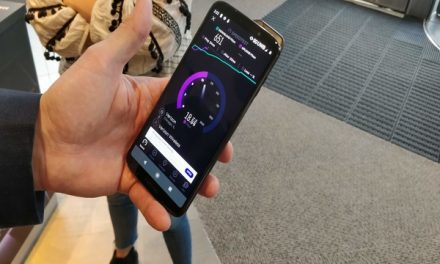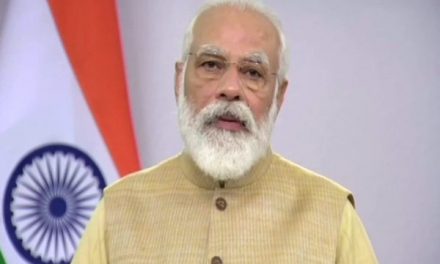Early last year, the Telecom Regulatory Authority of India (TRAI) had changed the DTH and Cable TV regulation massively in pursuit of fair system for all the stakeholders in the industry. However, once the changes were made, the new system was blamed to increase the prices massively for all consumers. Hence, TRAI announced that it would make some amendments to prices and the New cable tv rules to make it more customer-friendly. The new amendments have just been released and it aims to iron out some of the previous complaints.
Your cable TV and direct to home (DTH) subscriptions should now be a bit more affordable. The Telecom Regulatory Authority of India (TRAI) finalized the second amendment of the new tariff order earlier this year, called NTO 2.0 and that is now applicable. The previous tariff order had been implemented early last year. Broadcasters have to now offer revised prices of the ala-carte channels and bouquets and the Distribution Platform Operators (DPO) have to notify consumers to switch to these tariffs, if they haven’t already. Consumers who have cable TV subscriptions or have an active DTH connection from Tata Sky, Airtel Digital TV, Dish tv, d2h or Sun Direct will benefit from the new subscription prices.
The latest amendment to the TRAI DTH and new cable tv rules have brought down prices of the Network Capacity Fee (NCF) as well as allowing operators to provide discounts for their long-term plans. Changes have also been made to the multi-TV connection regulations as well as to the pricing of the bouquets. The new changes have once again taken into consideration the concerns of the consumers and the broadcasters.
The biggest change is the reduction of the network capacity fee (NCF) charge that is levied on each subscription, for every pre-defined bundle of channels. According to the new rules, the NCF charges for 200 channels can now be a maximum of Rs 130 plus taxes per month. Earlier, it was Rs 130 plus taxes per month for 100 channels. You will continue to pay Rs 25 for every bundle of 20 additional channels you add to your subscription. Also, the new guidelines clarify that the channels mandated by the Ministry of Information and Broadcasting, which include the Doordarshan channels, will not be counted towards the channel count for NCF charges.
Tata Sky and D2h have updated the policy documents to reflect the changes. D2h, owned by Dishtv, clarifies that its subscribers need to pay Rs.153.40 including taxes per month for the first 200 channels and every additional bunch of 10 channels will be charged at Rs 10. Also, if you happen to own multiple connections (as in multiple STBs) under the same user account details, d2h will charge a flat NCF of Rs 50 plus taxes—and a subscriber can choose their own set of channels for this STBs. Tata Sky says their customers need to pay Rs.153.40 per month for the first 200 SD channels, inclusive of all taxes and a flat charge of Rs.188.80 per month for more than 200 SD channels, including all taxes. Multi-TV users on Tata Sky have to pay Rs 61.36 for the first 200 channels and Rs 75.52 for more than 200 channels. Both companies consider 1 HD channels as 2 SD channels, which means for every HD channel you choose, it takes up the slot of 2 SD channels in the NCF computation.
TRAI also has finally clarified what the NCF charges for secondary TV connections must be. “TRAI has decided that in case of multi-TV home where more than one TV connection is working in a home in the name of one person, will charge maximum 40 per cent of declared NCF for second and additional TV connections,” say the new guidelines. Till now, if you had more than one active TV subscription at home, the NCF charges for all were roughly the same—unless your Cable TV or DTH company offered a discount.
The second amendment of the new tariff order also reintroduces the option of offering discounts for long term subscriptions, which in this case is defined as six months or more. DTH and Cable TV companies will now be able to offer discounted prices for long duration packs. In the new tariff order last year, TRAI had significantly curtailed the ability of the Cable TV and DTH companies to offer discounts on subscriptions, irrespective of duration of package. That resulted in a lot of DTH companies offering some extra viewing period if you subscribed to a long duration pack, but no discounts. It will be interesting to see how DTH companies configure the long-term tariff plans and roll these out in the coming days and weeks.
TRAI has also reemphasized that the pricing of ala-carte channels has to be in accordance with their pricing in a bouquet. “The sum of the a-la-carte rates of the pay channels (MRP) forming part of a bouquet shall in no case exceed one and half times the rate of the bouquet of which such pay channels are a part,” say the new guidelines. Interestingly, TRAI also says that only channels that have an ala-carte price of Rs 12 or less will be a part of a bouquet offered by broadcasters—this could mean some serious price revisions for individual channels. All in all, your TV subscription should become a tad more affordable than before. Which can be roundly celebrated as good news.











